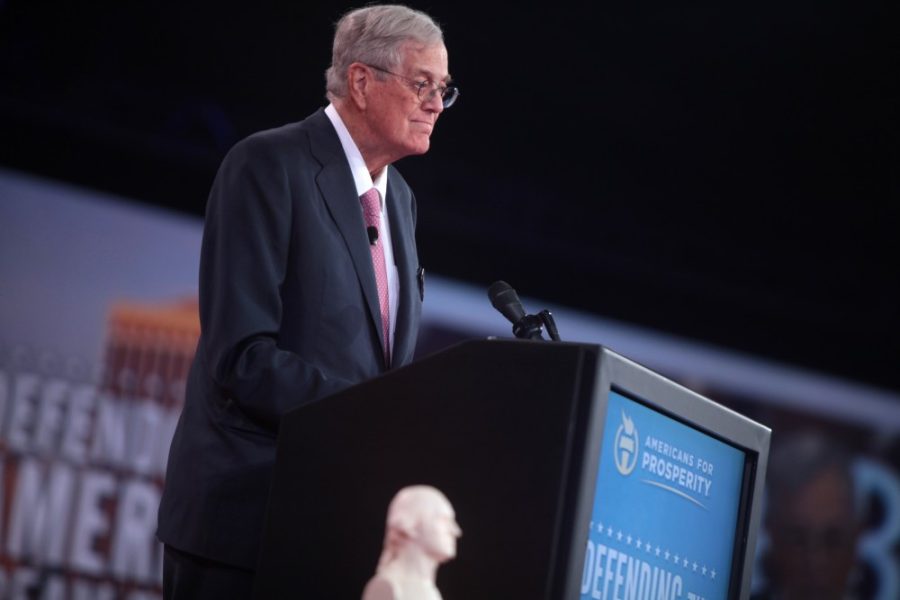When I tell people that I’m a PPEL major, I primarily get one of three responses: first, “what’s that?;” second, “very cool” and the controversial third, “that’s the one affiliated with the Koch brothers, right?” Well, as for the third question, I know about as much as the next person. What I can speak to, however, is my experience so far in the PPEL major — what we learn about and the biases I perceive (from my own biased perspective, of course). In short, I love my major, and I know that I am receiving an education unlike anything I could receive anywhere else.
To answer the first question, PPEL stands for Philosophy, Politics, Economics and Law. My major classes focus on the intersection of these fields and how these together impact our world. It really makes up for what my second major, economics, lacks. Economics is the study of how people make choices, but it often makes assumptions about many of the things that make people human, like culture, ideology or religion. PPEL teaches us to critically think about the world while keeping in mind the world’s complexity in the ways it regards ethics and morality.
This major is helping me fulfill my goal of learning how to think. I am learning to not take for granted everything I read, how to ask good questions and how to weigh many viewpoints. I’ve learned the importance of understanding myself and what I believe. It’s a beautiful experience.
RELATED: UA Freedom Center has questionable ties to Koch brothers
But before the beauty, many see two old men. A major concern, as I understand, of the Kochs donating money to the University of Arizona is that their personal philosophy might influence what is taught. In general, though, I do not think people openly donate money to organizations they disapprove of in order to cause change. Rather, they donate money to what they already support.
Using this logic, it can be assumed that the Kochs probably support what is taught in my major. The Kochs, in general, hold libertarian views. So, do I see this bias in my major?
First answer: yes – somewhat.
My professors are openly sympathetic to conservative, classically liberal and libertarian views. In my PPEL 301 course (intermediate microeconomics), my professor joked about ‘granola fascists’ and the foolishness of Earth Day. However, when it came to content, he gave us market curves for flat and progressive tax rates, subsidized and unsubsidized wages and never told us which were better or worse, but only the different outcomes and challenges of both. Any meaning derived from the graphs was up to us to interpret. In discussions and tests for other classes, we have never been wrong because of our answers or ideology, but for our reasoning or inability to connect evidence to our conclusions. Professors in this program, though they have their own beliefs, would not pass a student for her regurgitation of an assumed ‘accepted belief’ — which I am convinced there is not one — but for her ability to think critically about the subject at hand.
Every professor in every major looks through the lens of his or her own studies, and most majors carry their own assumptions. So far, all of my professors specializing in microeconomics have believed in the market’s ability to fix the same societal problems that many political science professors might believe the government has a better place in. My Spanish literature class, which focused on gender and critical thinking, held the assumption that women are, and probably always will be, oppressed by men. However, in order to think critically about the issue, one would have to look at other sides, like the antifeminist side — even if their claims might not be easily justifiable.
From my PPEL student’s perspective, I do not see a negative effect of the “Koch controversy” on my education. PPEL is a unique major home to some of the sharpest students I have met at the university. I know I spent a lot of time in this column simply praising the major, but my hope for people to understand, if you retain nothing else, is that the major does more than create gripping controversy. It fills me, as it does others, with a passion for discovering the nature of our world.
Toni Marcheva is a sophomore who loves rollerblading and reading works by classical economists. Follow Daily Wildcat on Twitter









